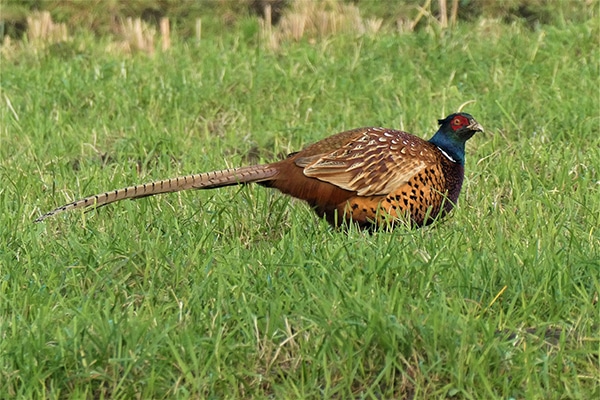
Lead vs steel – a question of lethality
BASC’s Peter Marshall summarises the findings of a new piece of research by Cranfield University into the pellet penetration of lead vs steel shot.
Get information on the legal shooting season for mammals and birds in the UK.
Learn about our current conservation projects and how you can get involved.
Comprehensive information and advice from our specialist firearms team.
Everything you need to know about shotgun, rifle and airgun ammunition.
Find our up-to-date information, advice and links to government resources.
Everything you need to know on firearms law and licensing.
All the latest news and advice on general licences and how they affect you.
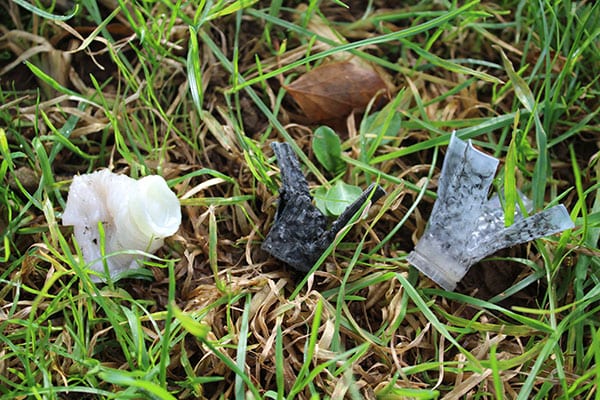

BASC’s head of wildfowling, James Green, tests the performance of the latest ‘eco-wad’ cartridges in the field.
Since the ban on using lead shot except in certain circumstances, the only feasible alternative for many wildfowlers in the UK has been steel shot cartridges with plastic wads – the latter necessary to protect barrel walls from wear caused by the former.
Modern steel cartridges have proven to be more than capable of humanely dispatching our quarry in an effective and consistent manner. But spreading small pieces of plastic on flightponds and the foreshore does not sit well with a community that takes great pride in its custodianship of our natural environment.
Recently, biowad or ecowad cartridges have arrived on the market and have been hailed as the answer to the problem. Their gel-type shot cups are designed to break down harmlessly in the environment within a few weeks. Intrigued by their claims, a few of us at BASC were eager to learn more about their performance and arranged some pattern plate testing.
We tried the 32g Eley VIP Steel Pro Eco Wad loads in both no. 3 and no. 5 shot and Gamebore’s 32g no. 4 Silver Steel cartridges.
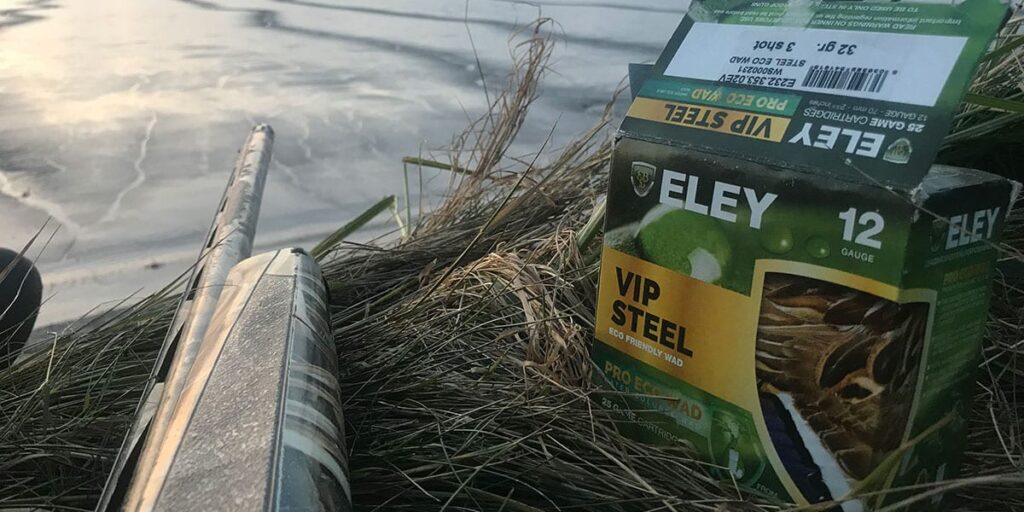
For reference, we also patterned a popular plastic wad load from Lyalvale Express – their ‘Hunting Steel’ in 32g no. 4.
I think we were all pleasantly surprised by the uniformity and consistency of the patterns from each of the cartridges; additionally, there was very little perceived difference in recoil. Confident in how they patterned through my gun, I was eager to try the Eley Eco Wads in the field at the next possible opportunity.
I got my chance by invitation of the Gloucestershire Wildfowling and Conservation Association to the Severn estuary where I downed my first duck of the season.
Of course, bagging three out of four chances in the half-light doesn’t really tell the full story about the performance of a cartridge – there are far too many variables involved in a successful shot – but combined with the results on the pattern paper, I am encouraged and will be using these cartridges for more of my shooting during the rest of this season.
As the heaviest ‘eco wad’ load on the market is 32g no.3, I will primarily be using them for the occasional duck over a pond, a few days on my small syndicate shoot, some pigeon and crow decoying. I hope as more people give them a try, and demand stimulates investment, the range of available loads will improve.
I spoke to D’Arcy Wyvill, owner of the Constable Burton estate in Yorkshire, who trialled the Eley VIP Steel Pro Eco Wads with guests on his pheasant and partridge shoot last season with a view to going completely lead-free next season.
“We have been using steel for many years on the wildfowl anyway – and it’s effective, that’s for sure. The worst thing about it is the plastic cup.
“Then there is the case for selling game into the food market. If the supermarkets won’t buy game shot with lead, then we have to make a decision at our end.
“All of our guests so far have been overwhelmingly supportive of the trial. They agree that we should be taking a proactive approach to improving the environmental credentials of our sport and helping our game dealers sell the end product.
“None of the Guns described any issue with recoil. The cartridges killed cleanly and on balance, we didn’t notice any more wounding than we would normally encounter. There was minimal residue left in the chambers and barrels of the guns – something we checked after every drive as this had been flagged as a concern.
“Afterwards on one drive we observed some small discs in the grass which were the cups breaking down. It was a wet week, but the rate of breakdown is still impressive.”
According to D’Arcy, there is still quite a lot of confusion over shot sizes and whether steel can be used in all guns.
“We spent a lot of time prior to the shoot days checking with our clients that their guns were compatible with steel shot,” he admitted. “All of them shot with modern over-and-unders with chokes of half or less.
Curious to try one of the new breed of cartridges? Why not get a variety and see which you prefer, both at the pattern plate and out in the field?
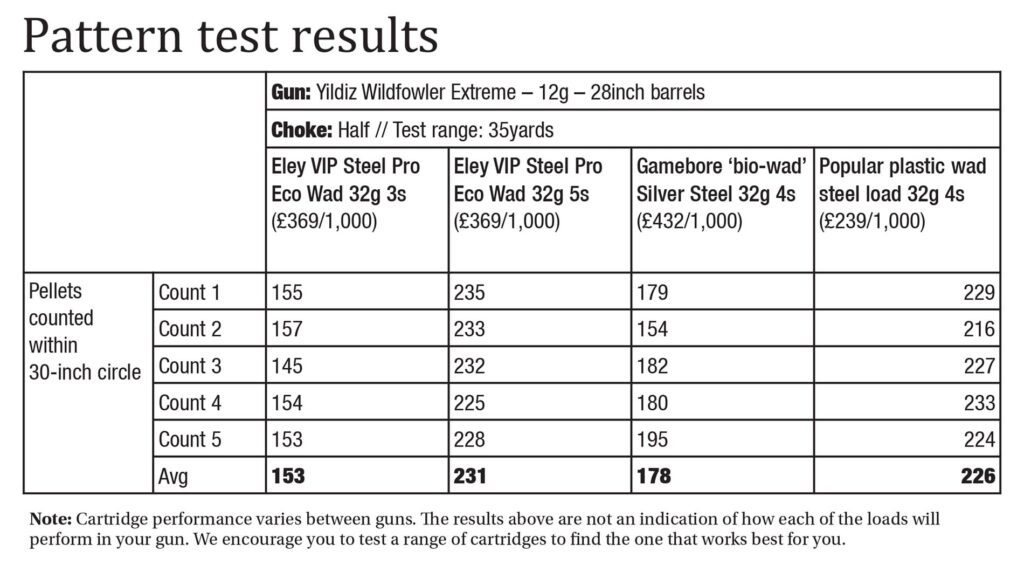

BASC’s Peter Marshall summarises the findings of a new piece of research by Cranfield University into the pellet penetration of lead vs steel shot.
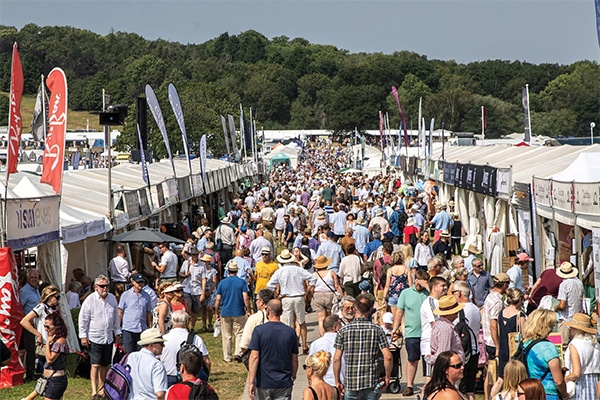
Young Shots Journalist Louis went to The Game Fair to find out more about sustainable ammo and cooking game.

BASC will respond to a Health and Safety Executive call for evidence on lead ammunition covering England, Wales and Scotland.
Sign up to our weekly newsletter and get all the latest updates straight to your inbox.
© 2023 British Association for Shooting and Conservation. Registered Office: Marford Mill, Rossett, Wrexham, LL12 0HL – Registered Society No: 28488R. BASC is a trading name of the British Association for Shooting and Conservation Limited which is authorised and regulated by the Financial Conduct Authority (FCA) under firm reference number 311937.
If you have any questions or complaints about your BASC membership insurance cover, please email us. More information about resolving complaints can be found on the FCA website or on the EU ODR platform.
This website uses cookies so that we can provide you with the best user experience possible. Cookie information is stored in your browser and performs functions such as recognising you when you return to our website and helping our team to understand which sections of the website you find most interesting and useful.
Strictly Necessary Cookie should be enabled at all times so that we can save your preferences for cookie settings.
If you disable this cookie, we will not be able to save your preferences. This means that every time you visit this website you will need to enable or disable cookies again.
This website uses Google Analytics to collect anonymous information such as the number of visitors to the site, and the most popular pages.
Keeping this cookie enabled helps us to improve our website.
Please enable Strictly Necessary Cookies first so that we can save your preferences!
More information about our Cookie Policy